15 Family Rules From The 1960s That Sound Wild Today
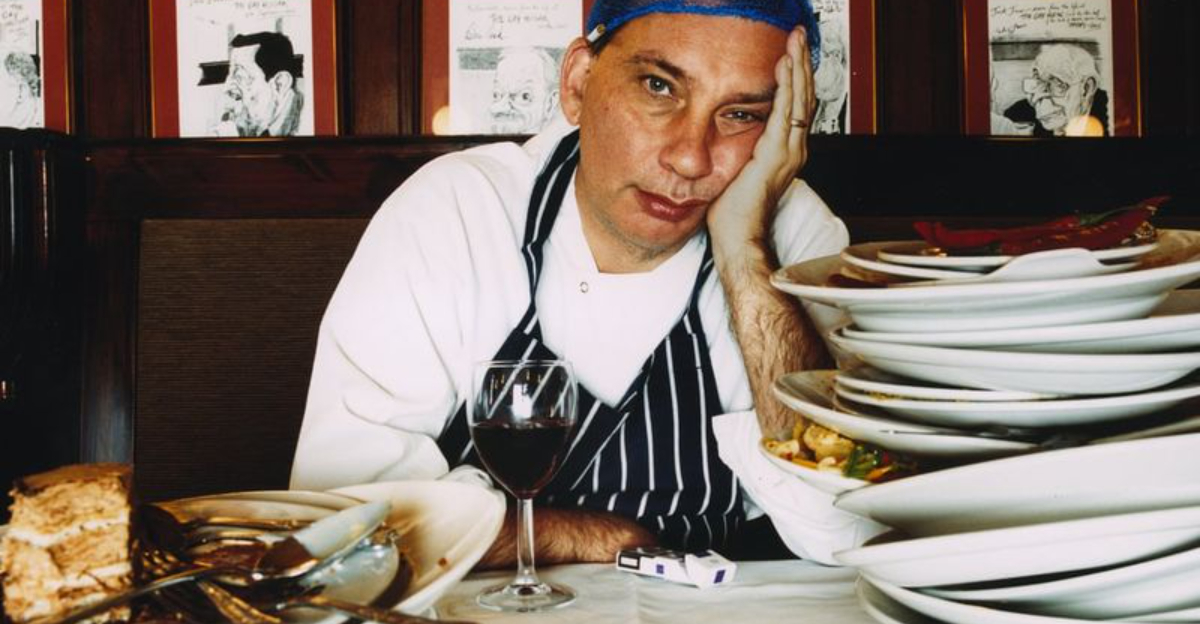
Ah, the 1960s—an era where rock ‘n’ roll blared from jukeboxes, skirts got shorter, and yet, somehow, household rules remained as stiff as a starched collar on Sunday.
While the youth were twisting the night away, parents were laying down rules that would make today’s kids do a double take. Growing up, I heard all kinds of stories from my folks about their childhood—and let me tell you, their house rules sounded like they came from another planet.
No elbows on the table? Sure, we’ve heard that one. But no talking during dinner unless you were directly spoken to? Wild. Wearing jeans to school? Absolutely not. And heaven forbid you call an adult by their first name!
In this blog post, we’re hopping in our time machine for a quirky and comical trip through the unwritten laws of 1960s family life. Get ready to laugh, groan, and maybe feel a little grateful for the relaxed vibes of today!
1. Children Should Be Seen and Not Heard
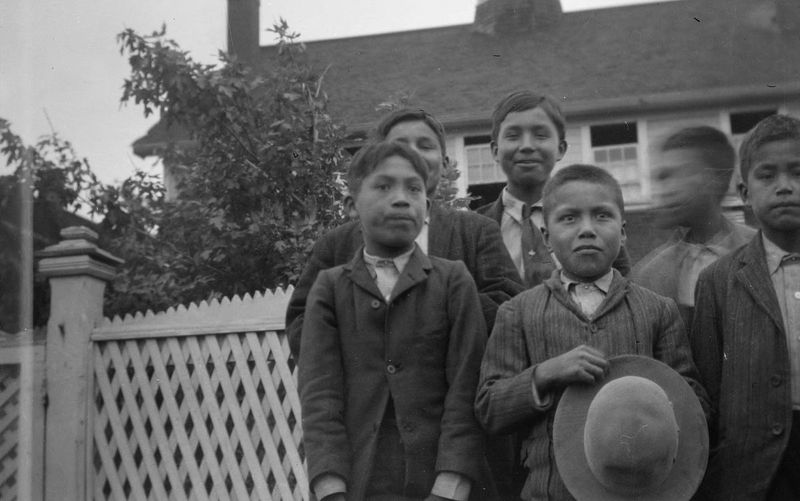
In the 1960s, children were expected to be the human equivalent of decorative vases—present but silent. I remember my dad recounting how he and his siblings would sit like little statues at family gatherings, their opinions as welcome as a rainstorm at a picnic. Back then, speaking up was akin to breaking a sacred oath. Imagine trying to hold in a sneeze during a silent room; that’s the kind of tension these kids lived with.
The funniest part? Adults would have spirited debates about topics like the moon landing, while kids were left pondering deep questions like why adults liked Brussels sprouts. It was a silent endurance test, where the winners got to go to bed without dessert. The rule was simple: if you had something to say, better save it for your diary—or your pet goldfish.
Today, encouraging kids to voice their thoughts is seen as a crucial part of their development. Back then, being seen and not heard was the gold standard of parenting. Well, unless you wanted to test the boundaries, then it was a quick trip to your room. Talk about effective communication!
2. Dinner is at 6—Don’t Be Late
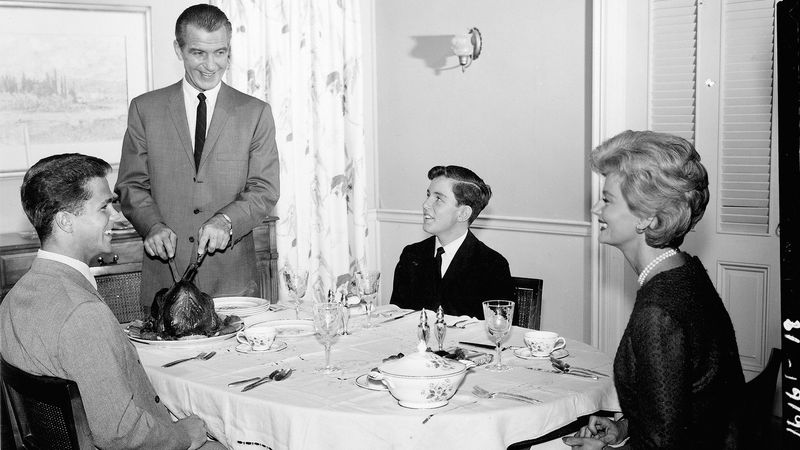
Six o’clock sharp was the time, and a tardy appearance at the dinner table was as scandalous as showing up in pajamas. My mom would chuckle about how they had to hustle back from playtime, leaving behind unimportant things like hide-and-seek victories.
Dinner was a grand affair, with roast beef and potatoes taking center stage, and everyone had to be dressed like they were attending a royal banquet. The irony? Most kids would’ve happily traded their itchy Sunday best for a pair of comfy pajamas. The hidden agenda was more than just a meal; it was about discipline, respect, and yes, the art of using a fork and knife without poking an eye out.
Today, dinner on-the-go is more common, but back then, familial bonds were forged over mashed potatoes and polite conversation. And heaven forbid you were late—missing even a single meal invite might subject you to endless teasing. Can you hear the echoes of “What took you so long? Chasing squirrels again?” Ah, the joys of punctuality!
3. Finish Everything on Your Plate

The mantra “finish everything on your plate” was as ingrained in the 1960s as tie-dye. My dad recalled how every meal came with a side of guilt, seasoned with mentions of starving children across the world. This was the era when leaving brussels sprouts untouched was practically a sin.
The guilt trip was as epic as a Tolstoy novel, with parents painting vivid pictures of hungry children who would have danced in joy for those unwanted peas. Eating was less about hunger and more about proving you were mighty enough to conquer that mountain of mashed potatoes.
Given today’s focus on listening to your body, the clean plate club might seem archaic. But in the ’60s, leftover food was as forbidden as talking during school announcements. The irony of it all? Kids often got creative, sneaking bites to the family dog under the table. And thus, not only did children eat their greens, but so did Fido. Now that’s teamwork!
4. No Talking Back
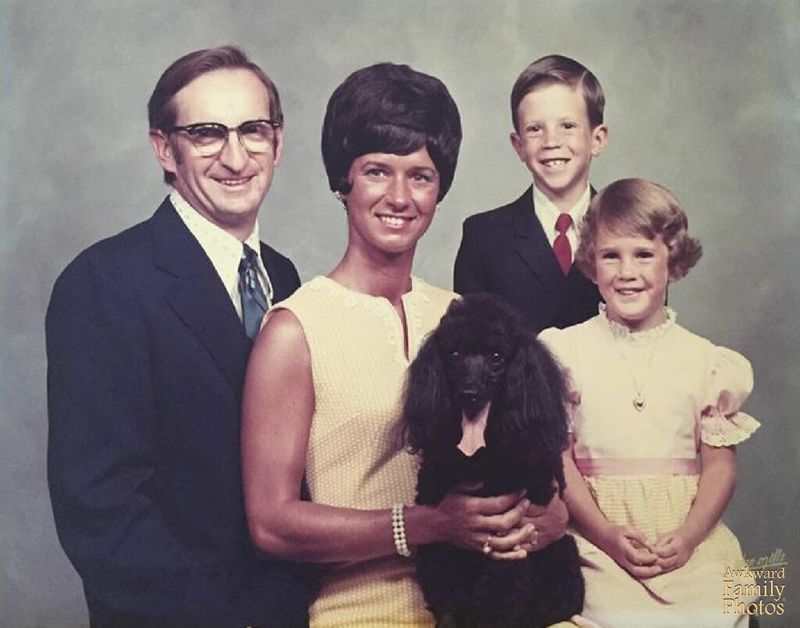
In the 1960s, talking back was the cardinal sin of childhood diplomacy. My uncle once shared tales of his “rebellious phase,” where a simple “But why?” could rival the Cuban Missile Crisis in tension. The consequences were swift—a stern look from a parent, or worse, the dreaded “wait until your father gets home” line, which seemed to hang in the air like an ominous cloud.
Back then, questioning authority was almost an art form, albeit a suppressed one. Kids were expected to nod along like bobbleheads, their voices stifled in the name of respect. The irony? Parents would later indulge in lengthy monologues about the value of free speech, leaving kids wondering where their slice of that freedom pie was.
Today, encouraging dialogue is seen as healthy, but in the ’60s, it was akin to walking a tightrope without a safety net. One wrong word could lead to a lecture on manners longer than a Sunday sermon. Perhaps the lesson here was learning when to speak and when to employ the age-old “smile and nod” tactic. After all, discretion was the better part of valor.
5. Bedtime is 8 PM, No Negotiations
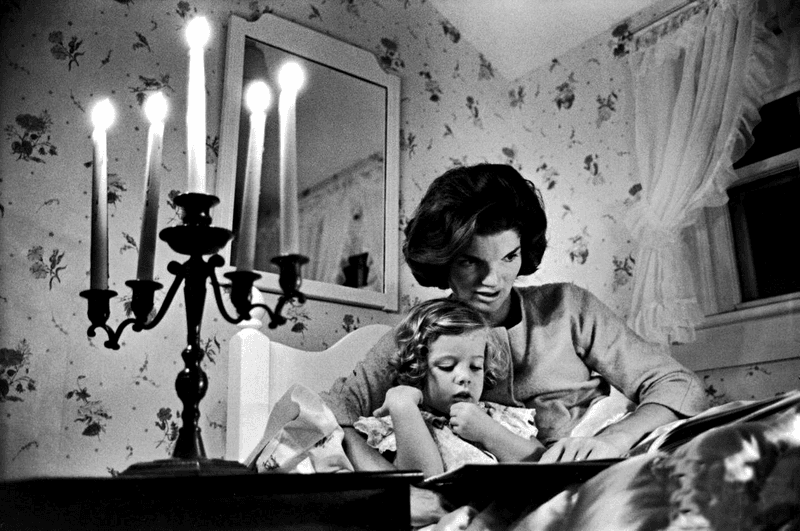
The magical hour of 8 PM marked the end of a child’s active day in the 1960s, and bedtime negotiations were as futile as trying to barter with a brick wall. My cousin recounted tales of how bedtime felt like being banished to another realm, with stories left unfinished and adventures paused indefinitely.
In an era bereft of screens, the struggle was real—lights out meant just that, with no sneaky late-night texting or Netflix marathons. Instead, kids were left to dream about the dinosaurs they saw on TV earlier, hoping tomorrow would come quickly.
The digital age has ushered in flexible bedtimes, but back then, 8 PM was a non-negotiable commandment from on high. And if you dared to resist, the creaky stairs leading to your room sounded like a march of impending doom. It was, in every sense, lights out, both literally and figuratively. Ah, the sweet symphony of parental authority!
6. Respect Your Elders—Always
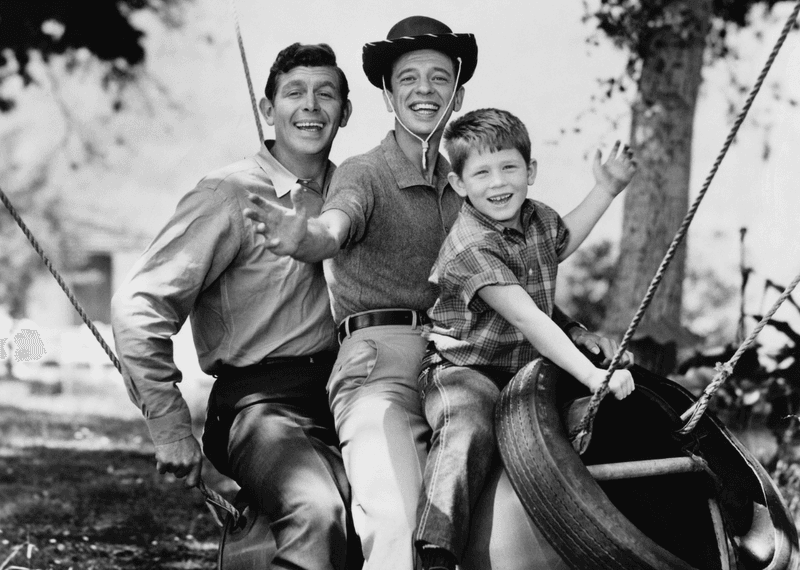
“Respect your elders,” they said, as if it were the key to unlocking life’s mysteries. In the ’60s, this rule was as unyielding as a grandmother’s hug. My parents often reminisced about times when elders’ opinions were like gospel, no matter how outlandish they seemed.
The unspoken rule was to nod supportively, even if Aunt Gertrude was spinning tales of her encounter with Martians. Challenging an elder’s wisdom was tantamount to declaring a family feud, which was best left in the pages of a novel.
Today, respect remains vital, but the emphasis has shifted towards mutual understanding. Back then, challenging an elder’s views required the courage of a dragon-slaying knight. The lesson? Sometimes keeping the peace meant suspending disbelief and resisting the urge to roll your eyes. After all, each elder was a treasure trove of stories, even if some were more creative than factual.
7. TV Time is a Privilege
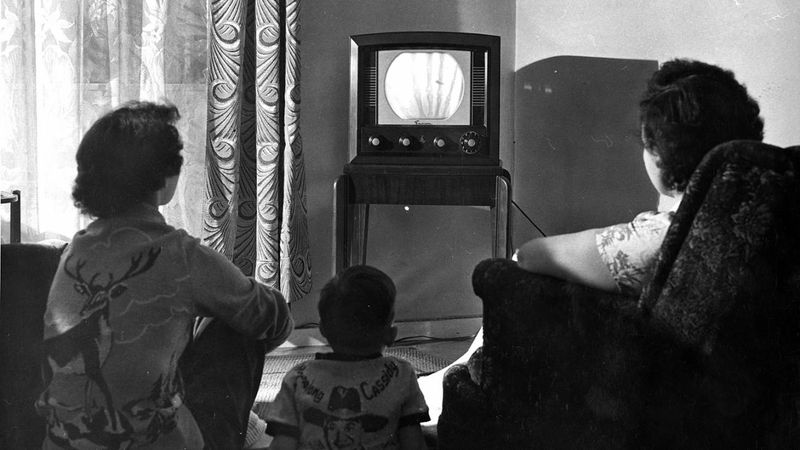
TV time in the 1960s was an elusive privilege, akin to the Holy Grail for children. My aunt loved recounting the elaborate rituals required to earn this sacred screen time. With only a handful of channels, the excitement was palpable—shows were communal events rather than solitary escapades.
Earning TV time involved a gauntlet of chores and homework, all completed with the precision of a military drill. The reward? An hour or so basking in the glow of black-and-white adventures, where heroes never tired and villains wore impeccable suits.
Today’s on-demand culture makes TV time seem trivial, but back then, it was a badge of honor earned through diligence and duty. Missing a favorite show was akin to missing your own birthday party; heart-wrenching and memorable. And if you dared argue over the remote, well, let’s just say the consequences were as dramatic as a soap opera cliffhanger.
8. Wait Until Your Father Gets Home
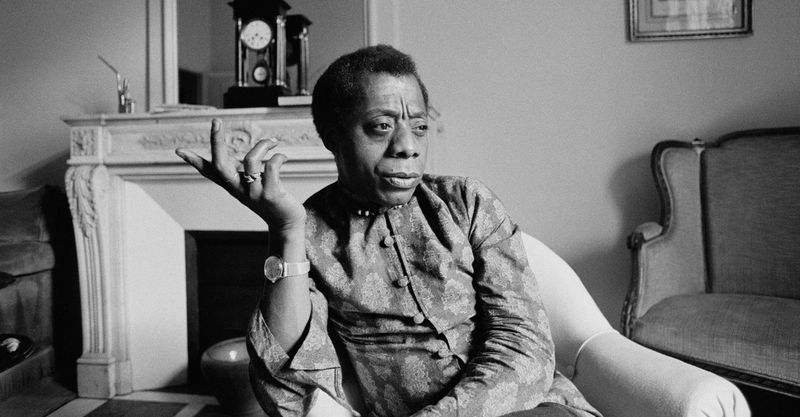
The ominous phrase “wait until your father gets home” was the stuff of legends in the 1960s. My dad would laugh about how this line could turn a day of fun into an afternoon of dread. It hung over the household like an impending storm, casting a shadow on even the sunniest of afternoons.
Back then, the patriarch’s arrival was synonymous with justice being served. Kids would scramble to remember their misdemeanors, often concocting elaborate stories to justify their actions. It was a time when the front door opening felt like the climax of a suspense novel.
In today’s world, parenting is more about collaboration, but in the ’60s, waiting for dad was a journey of repentance, a chance to reflect on one’s choices. The lesson? Sometimes it’s better to confess and face the music than wait for the parental jury to deliver its verdict. After all, honesty was the best policy, even if it came with a side of grounding.
9. Girls Don’t Call Boys
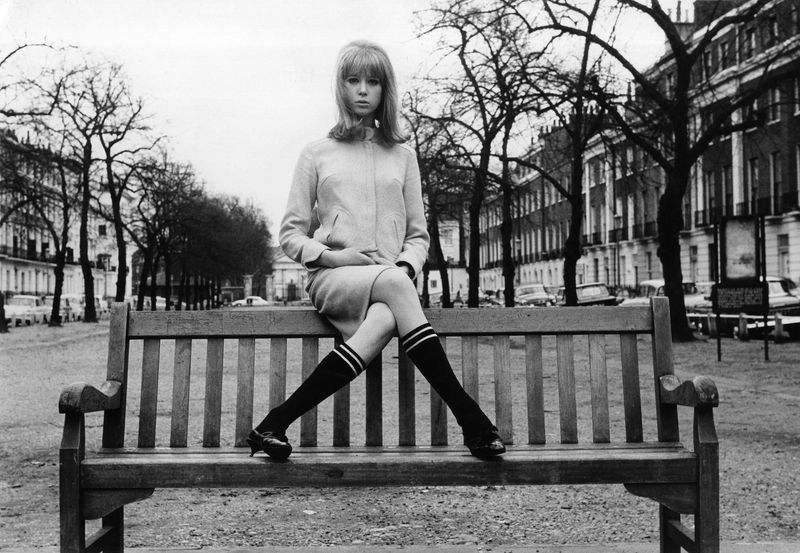
The unwritten rule of “girls don’t call boys” was as steadfast as a prom night curfew. My mom would share tales of how this social taboo turned a simple phone call into a saga of longing and anticipation. Calling a boy was seen as scandalous, almost as if you had declared your undying love through Morse code.
This rule was less about etiquette and more about preserving some illusion of feminine mystique, making even the boldest girls second-guess their actions. It fostered an environment where sending signals through a friend was the norm, and passing notes became the art form of choice.
The dating scene today is quite different, with open communication encouraged, but back then, this rule was as hard and fast as a high school football rulebook. The irony? Many of those clandestine calls were likely about homework, not heartstrings, but the drama was real. Oh, the tangled webs of teenage communication!
10. You Wear What I Lay Out for You
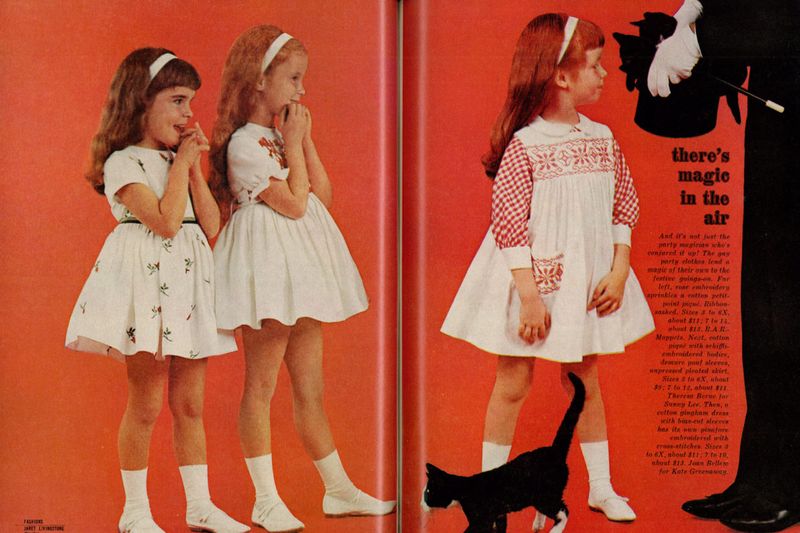
Fashion autonomy in the ’60s? Practically non-existent. Parents chose outfits with the precision of a stylist dressing a movie star. My aunt would giggle about how every morning felt like a runway debut, albeit one where the designer chose comfort over couture.
This rule was less about stifling creativity and more about ensuring conformity. Parents believed they knew best, ensuring their children looked presentable enough to withstand the judgmental gaze of society, or at least the neighbors.
Today, self-expression through clothing is celebrated, but back then, the rule was a gentle reminder of who really held the reins. If you dared to protest, the answer was simple: “You’re wearing it, and that’s final.” The irony was in the outfits often being anything but trendy—more plaid than plaid ever needed to be. Ah, the joys of parental fashion sense!
11. You Break It, You Buy It (Or Work It Off)
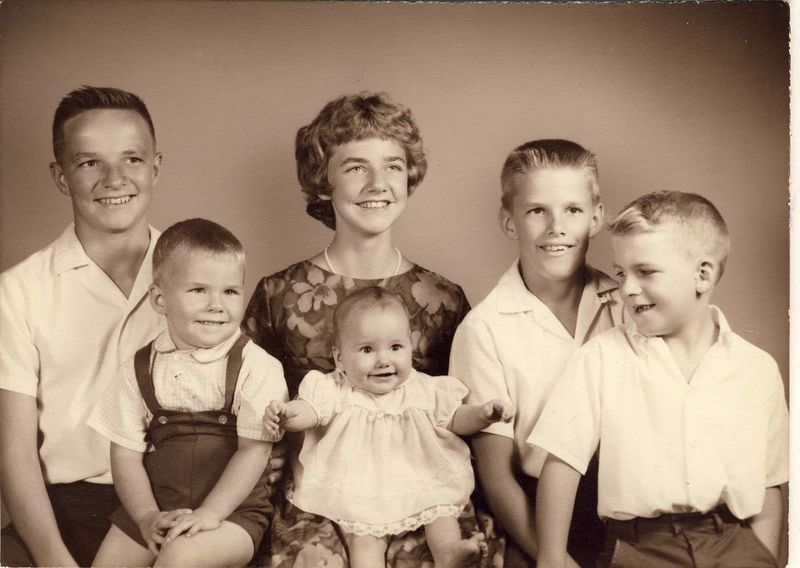
The “you break it, you buy it” mantra echoed through the ’60s like a haunting lullaby. My uncle would recount harrowing tales of how a game of indoor catch could turn into a summer spent mowing the lawn. Breaking something was akin to signing up for a work-study program in household maintenance.
Back then, accidents were met with lessons in responsibility rather than sympathy. The phrase was as much a parental creed as it was a reminder that actions had consequences. The trade-off for clumsiness? A summer of chores that taught more life lessons than a year in school.
Today, loose ends are tied with insurance, but in the ’60s, a broken vase meant more than just a shattered keepsake—it was an opportunity to learn about restitution. The real lesson was hidden in the manual labor and the newfound respect for fragile items. Talk about hands-on experience!
12. Church Every Sunday, No Excuses
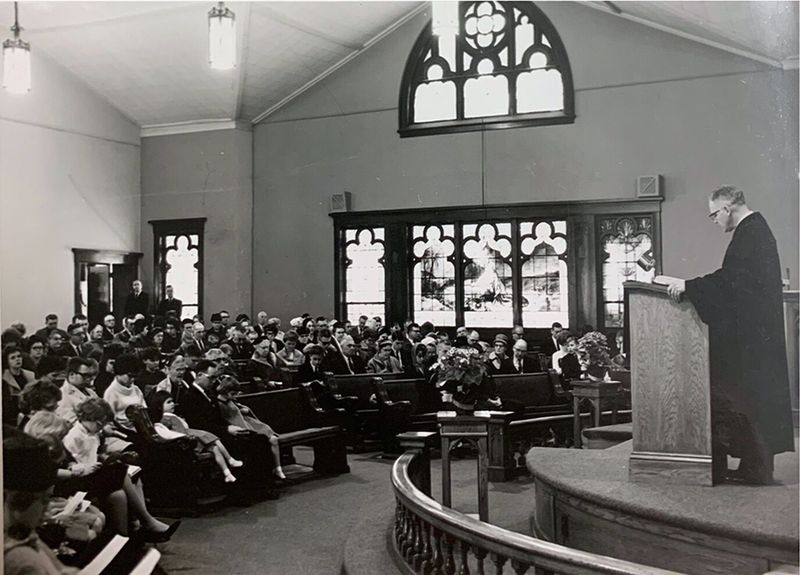
Sunday mornings in the 1960s had a single agenda: church. My grandparents would laugh about how even a sniffle wasn’t enough to grant a pass from this weekly ritual. Dressing in your finest was mandatory, even if your socks were rebellious twins who refused to match.
Attending church was seen as a cornerstone of community life, a place where faith and fashion collided. The sermons were as predictable as the weather, but the social aspect added a layer of intrigue. Missing church was unheard of, as if the heavens themselves would take note and frown upon your absence.
Today, spiritual practice is more personalized, but back then, the pews were filled with half-asleep kids dreaming of their afternoon adventures. The takeaway? Sometimes showing up was more important than the reason behind it. It was about community, camaraderie, and occasionally, a good post-sermon snack.
13. Boys Don’t Cry
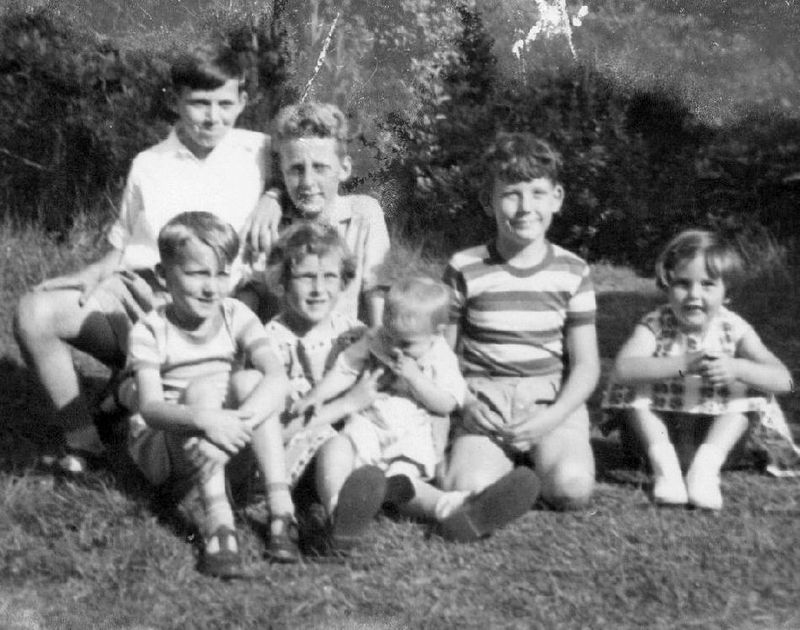
The “boys don’t cry” mantra of the 1960s was the emotional equivalent of a buzz cut—neat, tidy, and wholly unrealistic. My dad would chuckle over how tears were kept at bay, lest they invite ridicule or worse, a lecture about “toughening up.”
In those days, expressing emotion was seen as a chink in the armor, a vulnerability that could shake the very foundation of masculinity. Boys learned early on to swap tears for stoicism, channeling their emotions into pursuits deemed more acceptable, like sports or woodwork.
Today, emotional intelligence is celebrated, but back then, a single tear could lead to whispers of “softness” that clung to a reputation like gum on a shoe. The unspoken lesson was clear: emotions were to be managed, not displayed. It was a time when emotional suppression was mistaken for strength, and vulnerability was a lesson in disguise.
14. Kids Don’t Belong in ‘Grown-Up’ Conversations
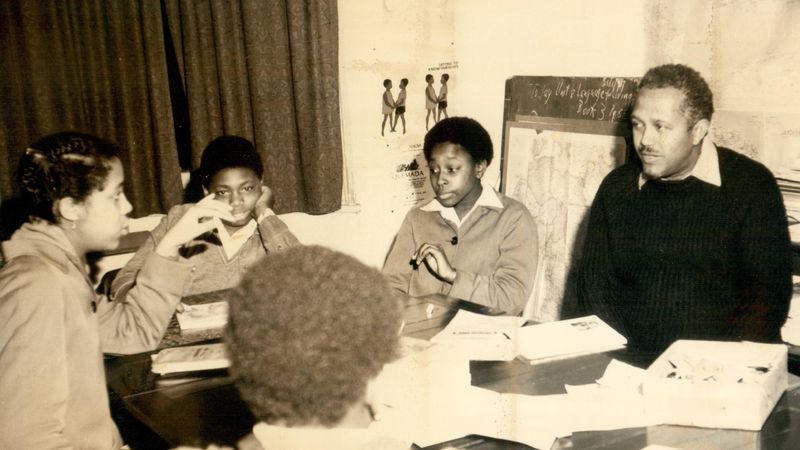
“Kids don’t belong in ‘grown-up’ conversations” was a line as firm as the line at the school cafeteria. My mom would reminisce about being shooed away during adult discussions, as if their young ears were too delicate for the weighty topics of the world.
Back then, mixed company meant keeping the kids on the fringes, listening in like spies hoping for a tidbit of intrigue. It was a time when secrets felt just out of reach, wrapped in the mysterious aura of adulthood.
Today, family discussions are more inclusive, but in the 1960s, the division was as clear as a freshly painted picket fence. The takeaway? Patience and the art of listening were honed to perfection, even if understanding was a stretch. After all, every adult conversation was a gateway to the world of wisdom, waiting to be unlocked.
15. Spanking is Discipline, Not Abuse
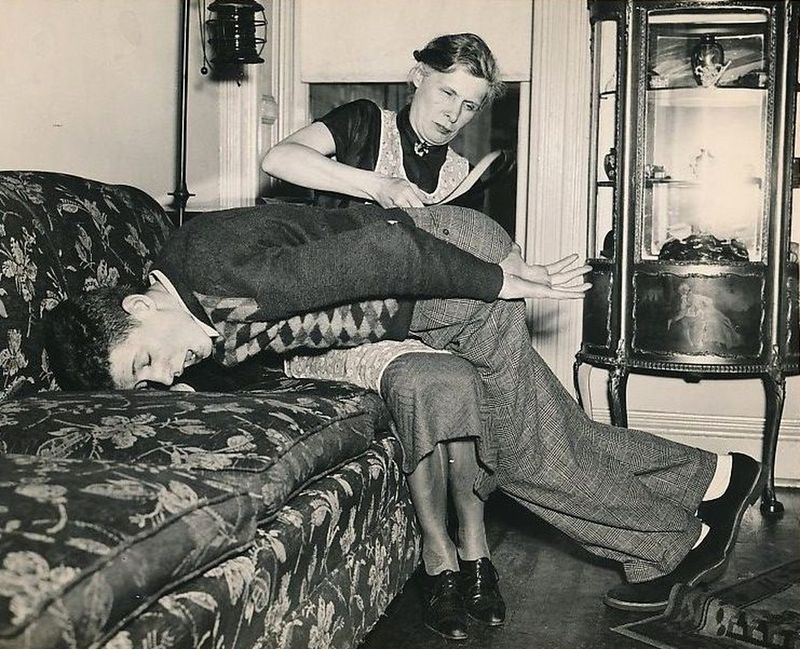
In the 1960s, spanking was viewed as a cornerstone of effective parenting, as commonplace as apple pie. My grandparents would recall how a wooden spoon was both a kitchen tool and an enforcer of discipline.
Back then, a quick swat was considered a corrective measure, a way to teach right from wrong with immediate feedback. The line between discipline and punishment was as clear as a black-and-white movie, with spanking seen as a way to instill respect and obedience.
Today’s parenting emphasizes positive reinforcement, but back then, spanking was often the first response rather than the last resort. The lesson was believed to be swift and effective, a physical reminder of the boundaries set by parents. It was a time when discipline was hands-on, and the echoes of that approach lingered long after the sting had faded.
